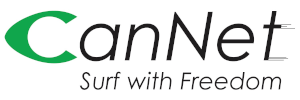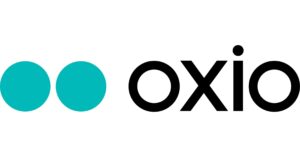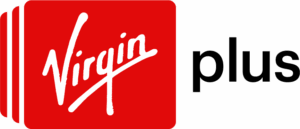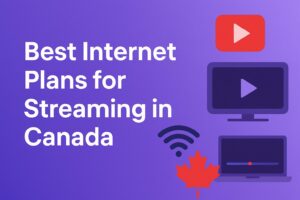Finding the best internet provider in Canada is not just about price or speed , it is about matching your needs with the right technology, support, and long-term reliability. Whether you are streaming 4K content in an urban condo, managing a remote business from a rural community, or simply looking for a dependable connection for your family, Canada’s internet landscape offers diverse options. This guide explores every key aspect of choosing the right provider without naming specific companies or plans, helping you make an informed decision based on your lifestyle and location.
Bell Internet
Starting Price: Plans from $59.95/month
Connection Type: Pure Fibre and DSL
Download Speeds: Up to 8 Gbps (select locations)
Availability: Ontario, Quebec, and Atlantic Canada
User Rating: ⭐ 4.4 / 5
Visit Bell Website
Expert Overview
Bell Internet is one of Canada’s largest ISPs, offering cutting-edge fibre technology and expansive DSL coverage. Its Pure Fibre plans deliver blazing-fast speeds and low latency ideal for high-demand users.
Advantages & Drawbacks
- Advantages: Ultra-fast Pure Fibre speeds, broad regional availability, Bell Wi-Fi app
- Drawbacks: Pure Fibre not yet available in all service areas
Service Highlights
- Speeds up to 8 Gbps in select regions
- Unlimited internet available on most plans
- Smart Wi-Fi technology for whole-home coverage
Performance Notes
Bell’s Pure Fibre network delivered consistent speeds in testing, even during peak hours. It’s a reliable choice for gamers, streamers, and remote workers who demand low-latency connectivity.
Telus Internet
Starting Price: Plans from $60/month
Connection Type: PureFibre and High-Speed DSL
Download Speeds: Up to 3 Gbps (in PureFibre zones)
Availability: British Columbia, Alberta, parts of Quebec
User Rating: ⭐ 4.5 / 5
Visit Telus Website
Expert Overview
Telus offers some of Canada’s fastest fibre-optic internet through its PureFibre network, delivering symmetrical speeds and strong customer service. Ideal for streaming, gaming, and remote work in Western Canada.
Advantages & Drawbacks
- Advantages: Symmetrical upload/download speeds, PureFibre technology, strong bundling options
- Drawbacks: Fibre access limited outside urban centres
Service Highlights
- Free Wi-Fi 6 modem with select plans
- Bundled services: Optik TV, home phone, security
- 24/7 customer support and mobile app access
Performance Notes
Telus consistently ranks among Canada’s top internet providers for speed and reliability, particularly in fibre zones. Customer reviews often highlight smooth streaming and low-lag gaming experiences.
VMedia Internet
Starting Price: From $39.95/month
Connection Type: Cable, DSL, and FTTN
Download Speeds: Up to 1024 Mbps depending on region
Availability: Ontario, British Columbia, Alberta, Manitoba, Quebec
User Rating: ⭐ 4.1 / 5
Visit VMedia Website
Expert Overview
VMedia is a budget-friendly independent ISP known for transparent pricing and nationwide availability. Offering both standalone and bundled internet solutions, it caters to families and individuals seeking reliable speeds without the high cost of major telecom providers.
Advantages & Drawbacks
- Advantages: Competitive pricing, flexible no-contract plans, availability across Canada
- Drawbacks: Speeds and quality may vary depending on third-party infrastructure; fewer premium add-ons
Service Highlights
- Unlimited usage on most plans with no throttling
- Affordable bundles including IPTV and home phone
- Choice of DSL, Cable, and FTTN depending on location
- Self-install options and easy-to-use online portal
Performance Notes
While VMedia does not operate its own infrastructure, it offers strong value using established third-party networks. Speeds are generally stable for everyday usage including streaming, remote work, and light gaming. Customers appreciate the no-frills billing and contract-free flexibility.
TekSavvy Internet
Starting Price: From $39.95/month
Connection Type: DSL, Cable, FTTN
Download Speeds: Up to 1000 Mbps (Cable)
Availability: Ontario, Quebec, and select regions across Canada
User Rating: ⭐ 4.2 / 5
Visit TekSavvy Website
Expert Overview
TekSavvy is one of Canada’s most prominent independent internet providers. It is widely praised for fair pricing, net neutrality advocacy, and reliable service across various DSL and cable options. It’s a go-to option for customers looking to avoid the big telecoms.
Advantages & Drawbacks
- Advantages: Transparent billing, no contracts, good tech support, wide speed range
- Drawbacks: No native fiber service; speeds rely on third-party infrastructure
Service Highlights
- DSL and cable plans with unlimited data
- Business internet plans and static IP available
- Tools for self-install and hardware rentals included
- Mobile phone service available in select areas
Performance Notes
TekSavvy delivers consistent performance for home and small office users. While peak-time speeds can vary depending on local infrastructure, customers appreciate the ethical pricing and commitment to internet freedom.
Diallog Internet
Starting Price: From $44.95/month
Connection Type: DSL and Cable
Download Speeds: Up to 1 Gbps (Cable areas)
Availability: Primarily in Ontario and Quebec
User Rating: ⭐ 4.1 / 5
Visit Diallog Website
Expert Overview
Diallog Telecommunications is a lesser-known but trusted ISP offering affordable and customer-focused internet services for residential and small business users. With tailored plans, Canadian-based support, and a straightforward sign-up process, Diallog is an attractive alternative to larger providers.
Advantages & Drawbacks
- Advantages: Competitive pricing, bilingual support, business-friendly plans with static IP options
- Drawbacks: Availability limited to Ontario and Quebec; no fiber service
Service Highlights
- Unlimited internet on all residential plans
- Custom small business packages with VoIP options
- Option to bundle home phone or VoIP
- Canadian-based tech and account support
Performance Notes
Diallog performs well for users who prioritize value and personalized support. While speeds and hardware depend on location, their DSL and Cable services are suitable for day-to-day online tasks and streaming.
Rogers Internet
Starting Price: Plans from $59.99/month
Connection Type: Cable and Fibre Hybrid (Ignite)
Download Speeds: Up to 1.5 Gbps
Availability: Ontario, Atlantic Canada, and parts of British Columbia
User Rating: ⭐ 4.3 / 5
Visit Rogers Website
Expert Overview
Rogers Internet offers high-speed residential and business internet across major regions in Canada. Their Ignite Internet packages use cable-fibre hybrid technology to deliver consistent speeds suitable for gaming, streaming, and remote work.
Advantages & Drawbacks
- Advantages: Fast and stable connection, Ignite Wi-Fi Hub, no data caps on many plans
- Drawbacks: Limited fiber-to-home availability; pricing may increase after 12 months
Service Highlights
- Whole-home mesh Wi-Fi support via Ignite Gateway
- Bundling available with TV, home phone, and wireless
- 24/7 customer support with self-serve tools via MyRogers app
Performance Notes
Rogers performed well in urban markets with high reliability and competitive speeds. Customers reported smooth streaming and stable video conferencing, especially on Ignite plans with Wi-Fi Pods.
Cannet Internet
Starting Price: From $34.98/month
Connection Type: Cable and DSL
Download Speeds: Up to 1 Gbps (in supported areas)
Availability: Ontario, Alberta, British Columbia, and Quebec
User Rating: ⭐ 4.0 / 5
Visit Cannet Website
Expert Overview
Cannet offers aggressively priced internet packages with unlimited data and no contracts. Targeted at cost-conscious customers, it delivers solid speeds via third-party infrastructure across multiple provinces. It’s ideal for households needing high bandwidth on a budget.
Advantages & Drawbacks
- Advantages: Very affordable plans, unlimited usage, simple installation
- Drawbacks: Customer support can be slow during peak times; hardware upgrades may cost extra
Service Highlights
- Unlimited data on all plans
- Often runs seasonal promos with free modem rental
- Supports cable and DSL in major urban and suburban regions
- Website features easy plan comparison and live chat
Performance Notes
While Cannet depends on third-party lines, it generally delivers advertised speeds during off-peak hours. Great for basic to moderate streaming, online classes, and multi-user homes where price is a top priority.
Xplore Internet
Starting Price: From $49.99/month
Connection Type: Fixed wireless, LTE, and satellite
Download Speeds: Up to 100 Mbps (varies by area)
Availability: Rural and remote regions across Canada
User Rating: ⭐ 3.9 / 5
Visit Xplore Website
Expert Overview
Xplore is one of the most recognized providers for rural broadband in Canada. Utilizing fixed wireless, LTE, and satellite technology, it extends internet access to underserved communities with flexible plans and improving speeds thanks to recent infrastructure upgrades.
Advantages & Drawbacks
- Advantages: Excellent rural availability, no fiber needed, expanding 5G fixed wireless
- Drawbacks: Latency may be noticeable for gaming or video conferencing; speeds vary significantly by region
Service Highlights
- Multiple technologies (LTE, fixed wireless, satellite)
- Optional unlimited data plans and smart routers
- Ideal for farms, remote offices, and cottages
- Online tools to check eligibility and signal availability
Performance Notes
In rural testing zones, Xplore offered stable speeds for general use and streaming, though weather and geography can impact signal consistency. Best suited for users who have limited ISP options or live outside cable/fibre service areas.
Oxio Internet
Starting Price: From $40/month
Connection Type: Cable (resold infrastructure)
Download Speeds: Up to 1 Gbps (location dependent)
Availability: Ontario, Quebec, Alberta, BC, Manitoba, and Saskatchewan
User Rating: ⭐ 4.4 / 5
Visit Oxio Website
Expert Overview
Oxio is a fast-growing independent internet provider that emphasizes simplicity, transparency, and customer-first service. Known for no contracts, fixed pricing, and clear communication, Oxio attracts younger and tech-savvy consumers looking for hassle-free internet.
Advantages & Drawbacks
- Advantages: Transparent billing, free modem/router, exceptional branding and customer engagement
- Drawbacks: Speeds depend on third-party cable lines; no native infrastructure
Service Highlights
- Clear and consistent pricing with no surprise fees
- Free modem/router included with all plans
- Multilingual customer service via chat, phone, and email
- User-friendly onboarding and modern self-serve portal
Performance Notes
Oxio users consistently report fast speeds, minimal downtime, and an enjoyable customer experience. Its lean digital-first model helps it deliver strong value, particularly in urban areas where cable access is stable.
Fizz Internet
Starting Price: From $39/month
Connection Type: Cable (reseller model)
Download Speeds: Up to 200 Mbps
Availability: Quebec and parts of Ottawa
User Rating: ⭐ 4.2 / 5
Visit Fizz Website
Expert Overview
Fizz is a digital-first internet and mobile provider operating under the Videotron umbrella. It is popular for its self-managed plans, rewards program, and transparent pricing. Fizz caters especially well to students and digital natives seeking no-hassle internet services.
Advantages & Drawbacks
- Advantages: Competitive pricing, easy account management via app, strong loyalty rewards
- Drawbacks: Limited availability; no customer phone support, chat only
Service Highlights
- No long-term contracts or surprise fees
- Invite and reward system for extra savings
- Simple online signup and management portal
- Localized customer base with strong regional focus
Performance Notes
Fizz delivers reliable internet access for everyday tasks, HD streaming, and remote work. It’s ideal for younger customers or anyone who prefers to manage their service entirely online without traditional call centre support.
Coextro Internet
Starting Price: From $49.95/month
Connection Type: Fibre-to-the-Building (FTTB)
Download Speeds: Up to 1 Gbps
Availability: Condos and apartments in the Greater Toronto Area
User Rating: ⭐ 4.3 / 5
Visit Coextro Website
Expert Overview
Coextro is a boutique ISP specializing in high-speed internet for multi-unit residential buildings in the Toronto area. With a focus on condo and apartment dwellers, Coextro delivers fast, reliable fibre-based service at competitive rates.
Advantages & Drawbacks
- Advantages: Dedicated condo fibre network, symmetrical upload/download speeds, excellent uptime
- Drawbacks: Limited to select properties; not available in single-family homes
Service Highlights
- Fibre-to-the-suite connectivity with no usage caps
- Free installation in partner buildings
- Available add-ons: VoIP, IPTV, static IP
- Toronto-based customer support team
Performance Notes
Customers in serviced buildings report excellent performance and near-zero buffering, even during peak hours. Coextro is a top choice for professionals and streamers living in downtown condos who need fast, uninterrupted internet access.
Virgin Plus Internet
Starting Price: From $50/month
Connection Type: Cable & Fibe (location dependent)
Download Speeds: Up to 1.5 Gbps
Availability: Ontario, Quebec, and select regions across Canada
User Rating: ⭐ 4.2 / 5
Expert Overview
Virgin Plus offers competitive internet plans backed by Bell’s infrastructure. With flexible speeds, bundling options, and nationwide reliability, Virgin Plus appeals to budget-conscious households seeking brand-backed stability without premium pricing.
Advantages & Drawbacks
- Advantages: Affordable promotional pricing, access to Bell’s large network, flexible bundling with mobile plans.
- Drawbacks: Price increases after promo period, customer service rated average compared to independents.
Service Highlights
- Speeds ranging from 50 Mbps to 1.5 Gbps
- Discounts when bundled with Virgin Plus Mobile
- No data caps on most plans
- Uses Bell’s extensive Fibe and cable infrastructure
Performance Notes
Virgin Plus users typically report stable performance, particularly in urban centers. While support response times can vary, the brand benefits from Bell’s infrastructure and competitive nationwide coverage.
Beanfield Internet
Starting Price: From $50/month
Connection Type: Fibre-to-the-Premises (FTTP)
Download Speeds: Up to 1 Gbps (symmetrical)
Availability: Select buildings in Toronto, Montreal, and Vancouver
User Rating: ⭐ 4.5 / 5
Visit Beanfield Website
Expert Overview
Beanfield is a leading independent fibre internet provider that owns and operates its network, offering ultra-fast symmetrical speeds with transparent pricing. It is favored in buildings that are pre-wired for Beanfield’s FTTP service, delivering exceptional performance with no throttling or hidden fees.
Advantages & Drawbacks
- Advantages: Symmetrical gigabit speeds, no contracts, excellent customer service, net-neutral operations
- Drawbacks: Limited to Beanfield-connected buildings; installation depends on building approval
Service Highlights
- Gigabit upload/download speeds ideal for creators, gamers, and businesses
- 100% fibre infrastructure with zero legacy copper
- Free standard installation and modem
- Focused community support and clear rate guarantees
Performance Notes
Beanfield excels in buildings it serves directly, offering lag-free streaming, video conferencing, and remote work. Users benefit from symmetrical gigabit speeds, fair pricing, and a commitment to ethical ISP practices.
Understanding Internet Technology in Canada
Canada’s internet infrastructure is built on a combination of technologies, each offering different benefits. Urban centers enjoy access to high-speed fibre optic and cable internet, while rural areas often rely on DSL, fixed wireless, or satellite options. Fibre offers the fastest and most reliable service, delivering symmetrical download and upload speeds ideal for households with multiple users or for heavy data use. Cable is widely available and fast but can slow during peak times. DSL, often used in older infrastructure, remains common in areas without newer investments. Satellite and fixed wireless are alternatives where ground infrastructure is limited, though they can suffer from higher latency and weather interference.
Factors to Consider When Choosing a Provider
Price and speed are top priorities for most consumers, but there are many additional factors to consider. Contract terms, reliability, equipment quality, and customer service all significantly impact the experience. Some providers advertise low introductory rates that increase dramatically after a few months. Others may offer flexible, no-contract plans but charge higher equipment rental fees. Always read the fine print. Look for clear information on installation charges, data overage fees, and cancellation policies. Customer support quality can vary significantly between companies, and poor service during outages or setup issues can be frustrating.
Internet Needs by Household Type
Every household has unique internet usage patterns. A single user in a studio apartment may be satisfied with a basic plan, while a family of five working, studying, and gaming online simultaneously will need much higher bandwidth and a strong Wi-Fi network. Gamers and streamers benefit from low latency and high speeds, whereas casual users browsing the web and checking email can manage with lower-tier packages. Smart home devices also impact usage , the more connected devices, the more bandwidth you will require.
Urban vs Rural Internet Access in Canada
Urban Canadians typically have access to a variety of internet providers and technologies. Fibre and cable internet are common in cities, offering gigabit-level speeds. In contrast, rural and remote areas face more limited options. Satellite internet provides wide coverage but is susceptible to latency and weather conditions. Fixed wireless solutions are becoming more widespread and can offer reasonable speeds, especially in less densely populated provinces. The disparity in infrastructure between urban and rural regions remains a challenge that government initiatives are actively trying to address.
Speed Requirements for Common Activities
Not all internet speeds are created equal. If you are unsure what speed you need, consider the types of activities you perform daily. Basic browsing and email require only 5 to 10 Mbps. Streaming HD content needs about 15 Mbps, while 4K streaming and gaming require upwards of 25 to 50 Mbps. Households with multiple users may need plans offering 100 Mbps or more to ensure smooth performance. Upload speeds are especially important for video calls, online teaching, content creators, and cloud backups.
Data Limits and Unlimited Plans
Many internet plans come with data caps, particularly among budget providers or rural service options. Exceeding your data limit may lead to throttled speeds or extra charges. Unlimited data plans provide peace of mind but may come at a higher monthly cost. If your household streams frequently, works from home, or uses cloud storage, unlimited data is worth the investment. Always check whether a plan advertised as “unlimited” actually has a fair usage policy that could impact your speeds after heavy use.
Understanding Contracts and Hidden Fees
Some providers require a one- or two-year contract with penalties for early cancellation. Others offer contract-free plans but may charge higher monthly rates. It is crucial to compare the total cost over time rather than just the initial price. Look for hidden costs like installation fees, modem or router rentals, early termination charges, or technician visit costs. Always get a full breakdown of your expected monthly bill before committing to any plan.
Customer Service and Support
Internet issues can happen at any time, so responsive customer service is essential. Before signing up, research customer reviews and check whether support is available 24/7. Some providers offer live chat, email, and phone support, while others only operate during business hours. Look for companies with Canadian-based support teams, as they are often more familiar with local network issues and can respond faster.
Bundling Services for More Value
Many providers offer bundled services including home phone, television, or mobile. Bundling can save money and simplify billing but always compare the value of bundled services against standalone options. In some cases, you may end up paying for services you rarely use. Consider bundling if you are already using TV and phone services from the same provider, especially when promotional pricing is offered.
Internet for Students, Seniors, and Low-Income Households
Several providers and government programs offer discounted plans for students, seniors, and low-income families. These plans are designed to ensure basic access to the internet for essential tasks like education, healthcare, and job applications. Eligibility may require proof of income, student ID, or enrollment in federal assistance programs. If you or someone in your household qualifies, these programs can offer tremendous savings and access to necessary online resources.
Security and Equipment Considerations
Your modem and router play a vital role in your internet experience. Outdated equipment can slow down speeds and reduce Wi-Fi coverage. Providers often rent these devices, but purchasing your own can save money over time and provide better performance. When choosing equipment, ensure it supports modern security protocols (like WPA3) and dual-band or tri-band networks for optimal speed. Also, consider network management tools or parental controls if you have children.
Reliability and Uptime Guarantees
Reliability matters more than speed for many users. A slightly slower but stable connection is better than a fast connection that drops often. Ask providers about their uptime guarantees, service level agreements (SLAs), and how they handle outages. Check online reviews for regional feedback on outage frequency, as reliability can vary even within a city.
Accessibility and Infrastructure Investment
The Canadian government has been working with telecom companies to expand high-speed internet to underserved communities. Projects under the Universal Broadband Fund and other regional initiatives have committed billions toward connecting rural, Indigenous, and remote areas. When choosing a provider, ask whether your area is due for infrastructure upgrades, as fibre expansion is ongoing in many provinces and territories.
Comparing Connection Types
Fibre: Offers the best performance but limited availability in some rural regions. Ideal for high-demand households and professionals.
Cable: Widely available with high download speeds, though shared lines may slow during peak hours.
DSL: Common in older infrastructure areas; reliable but slower.
Fixed Wireless: Useful in rural locations; speeds can vary based on distance and weather.
Satellite: Accessible nearly everywhere but comes with higher latency and lower speeds.
Environmental and Sustainability Considerations
Some providers are investing in greener operations, including energy-efficient data centers and carbon offset programs. If environmental impact matters to you, look for ISPs that share their sustainability efforts publicly. This can include e-billing, recycling old hardware, or running on renewable energy sources.
Trends and the Future of Internet in Canada
The future of internet service in Canada includes greater fibre deployment, 5G-based home internet in suburban and rural areas, and smarter AI-powered network optimization. Consumers can expect more competitive pricing, fewer data caps, and improved service transparency. Technologies like mesh Wi-Fi systems and smart modems are becoming standard, helping users achieve better in-home coverage and self-service troubleshooting options.
Final Thoughts: Making the Right Choice
The best internet provider is not the same for everyone. Your ideal provider depends on your location, budget, speed requirements, and usage habits. By understanding connection types, hidden fees, customer support, and bundling options, you can choose a provider that meets your needs today and is equipped to grow with you tomorrow. Take the time to evaluate your options carefully and always read the fine print , the right internet connection is a foundation for modern life in Canada.
















